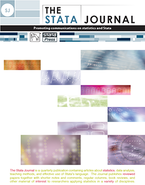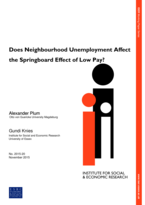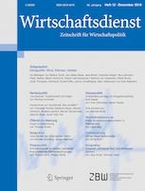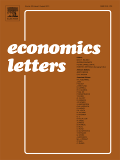New Publications
The Stata Journal: "Bireprob: An estimator for bivariate random-effects probit models"
New publication by Alexander Plum:
|
Alexander Plum presents the bireprob command, which fits a bivariate random-effects probit model. Bireprob enables a researcher to estimate two (seemingly unrelated) nonlinear processes and to control for interrelations between their unobservables. The estimator uses quasirandom numbers (Halton draws) and maximum simulated likelihood to estimate the correlation between the error terms of both processes. The application of bireprob is illustrated in two examples: the first one uses artificial data, and the second one uses real data. Finally, in a simulation, the performance of the estimator is tested and compared with the official Stata command xtprobit.
The publication can be found here. |
 |
ISER Working Paper Series: "Does Neighbourhood Unemployment Affect the Springboard Effect of Low Pay?"
|
There is considerable debate on whether the employment and earnings prospects are better for those on low pay or for the unemployed. Alexander Plum und Gundi Knies use Understanding Society data for England and estimate dynamic random effects panel models which show robust evidence that the future unemployment risk is lower for those who are currently on low pay compared to those who are currently unemployed and the low-paid also have a higher chance than the unemployed of becoming higher-paid. These findings are most marked in neighbourhoods with high unemployment which is attributable to the much poorer prospects of the unemployed in these neighbourhoods.
The working paper can be found here. |
 |
Wirtschaftsdienst: New Proposal for a Pension Reform
New publication by Andreas Knabe and Joachim Weimann:
|
The ageing of the German population will necessarily reduce the pension levels provided by the German pay-as-you-go public pension insurance. The pension reforms of the last decade aimed at encouraging savings in private, fully-funded pension insurances (through tax advantages and subsidies). However, only a minority of Germans has decided to make use of these opportunities. Andreas Knabe and Joachim Weimann propose to strengthen this type of old-age provision by using insights from behavioural economics.
The paper can be found here. |
 |
Economics Letters: "Heterogeneity in unemployment state dependence"
New publication by Alexander Plum and Sara Ayllón:
|
By applying a heterogeneous slope model, Alexander Plum and Sara Ayllón (University of Girona) show that unemployment state dependence varies across workers. Assuming a homogeneous effect of past unemployment on the risk of staying unemployed underestimates the scarring effect of unemployment in the majority of European countries analyzed. The publication can be found here. |
 |
CESifo Working Paper Series: "The Subjective Well-Being of Workfare Participants"
New working paper by Andreas Knabe, Ronnie Schöb and Joachim Weimann:
|
In a new working paper, Andreas Knabe, Ronnie Schöb and Joachim Weimann shed more light on the subjective well-being of workfare participants and compare it to the well-being of unemployed and employed workers. Using data from a self-conducted survey among participants in workfare schemes in Germany, two subdimensions of subjective well-being life satisfaction and emotional well-being are separately examined to obtain a more comprehensive view of the subjective impact of workfare jobs. The results show that the life satisfaction of workfare participants is between that of employed and unemployed people. More surprisingly, perhaps, their emotional well-being is the highest of these three groups.
The working paper can be found here. |